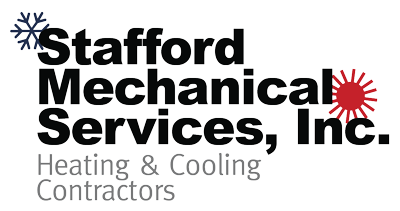 Most people can agree that nothing feels better on a hot, humid day than the cool comfort provided by an air conditioning system. But some homeowners avoid getting a system for their home because they’re concerned about both energy usage and environmental impact. Today, there are many options available that provide both energy-efficient cooling, as well as a smaller carbon footprint. One of those options is geothermal cooling and heating.
Most people can agree that nothing feels better on a hot, humid day than the cool comfort provided by an air conditioning system. But some homeowners avoid getting a system for their home because they’re concerned about both energy usage and environmental impact. Today, there are many options available that provide both energy-efficient cooling, as well as a smaller carbon footprint. One of those options is geothermal cooling and heating.
What is Geothermal Cooling?
Geothermal cooling works by absorbing the heat from your home and transferring it underground where the cooler earth absorbs it. A geothermal system consists of a heat pump inside your house and vertical loops buried in the ground outside your house. The heat pump circulates a fluid mixture through the loop, which acts as a heat exchanger. In the summer, the heat pump removes heat from the air inside your house and transfers it to the fluid, which then releases it to the cooler ground. This leaves only cold air inside your house. During the winter months, the process is reversed, pumping heat from the ground into your home.
What are some of the benefits of having geothermal cooling and heating installed in my home?
We briefly explained some of the benefits above regarding geothermal, such as better efficiency and smaller environmental impact. Here are a few more details about the benefits of geothermal:
- Energy efficiency: Geothermal is very energy efficient, which can save you money on your energy bills. In fact, geothermal systems can save you up to 50% on your heating and cooling costs.
- Improved home comfort: A geothermal system provides a consistent level of comfort throughout the year, regardless of the outside temperature. That means it can also be used to heat your home in the winter. Instead of pumping the hot air out of your home, it extracts the heat from the ground and pumps it inside, making it a great solution for year-round comfort.
- Environmentally sound: Geothermal is a renewable energy source, so it is good for the environment. Because it does not require fossil fuels to operate, it does not produce any emissions, so it is a good choice for people who are concerned about air quality.
- Long lifespan: Geothermal systems have a long lifespan, so you can expect to get many years of use out of them. In fact, the Department of Energy indicates that a properly installed and maintained geothermal system can last for more than 20 years.
- Incentives: Often, government agencies and manufacturers provide rebates and incentives that can help make geothermal heat pump systems a more attractive choice for homeowners.
What are some of the concerns about geothermal heat pump systems?
While a geothermal system can be a great choice for homeowners looking to save energy and enjoy year-round comfort, there are a few concerns people have when it comes to choosing it. One issue is cost. Geothermal systems are often more expensive than their traditional counterparts, but it’s important to note that energy savings are often enough to offset initial costs. Another concern is space. It’s important to have a qualified HVAC contractor look at your property to ensure there is enough area to install a geothermal system.
Can Stafford Mechanical Services tell me more about geothermal systems?
We can! At Stafford Mechanical, we’re pleased to offer our customers geothermal installation, maintenance, and repair. We can help you decide if a geothermal system is right for your home, and make sure you get the services you need after installation. To learn more about installing a heat pump system in your home, contact us via phone at (860) 684-9485. We look forward to helping you with all your geothermal heat pump needs.
